Financing for 60 Months with approved credit!* LEARN MORE
People who own a heat pump know what year-long comfort feels like. If you use a heat pump, you can appreciate effective and efficient heating in winter, and wonderful cooling in summer. Most of the time, all you have to do is schedule routine maintenance from the expert heat pump contractors at Logan A/C and Heat Services and sit back and enjoy it. Once your heat pump gets toward the end of its natural life, we know that our heat pump installation in Cincinnati will ensure you continue to get the best in heating and cooling.
Request help from a Logan Technician.
Questions? Call us at (800) 564-2611.
"*" indicates required fields
24/7 service
on All Major Brands
Same-Day
Estimates
Next-Day
Installation
Free
In-Home Estimates
#1
Trane Dealer in Ohio
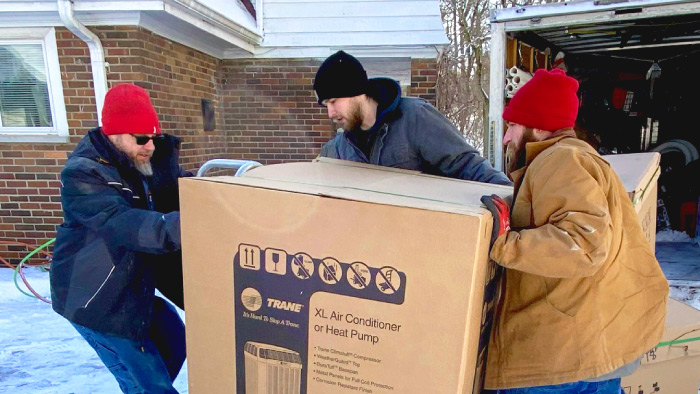
Serving Ohio since 1969, Logan A/C and Heat Services aims to provide you with a better guarantee that the inside temperature will always meet your needs. Our experienced technicians are qualified to install your new heat pump properly and confirm that everything works as intended. We partner with top manufacturers to bring you quality products to suit both your need for comfort and your specific budget. Plus, if you have additional questions or need additional information about your new heat pump, our excellent customer service team is here to help. We stand by our work, and our team is happy to provide any assistance needed to ensure that you are satisfied with your new heat pump.
We not only provide fast, friendly service, but also a commitment to 100% customer satisfaction on every job. Even better, when you work with us on your ducted heat pump installation, you’ll see that we treat our customers like family. We care about your comfort. That’s why we’re the company you can trust to get your heat pump installed accurately and efficiently.
It’s not always easy to tell that your heat pump is on its way out and you need to replace it. Heat pumps can function well for a decade or more, with only a slight change from year to year. However, if you pay attention, you may notice that your heat pump is trying to warn you about future problems.
Here are some signs to watch for, as a way to know that it’s time for new heat pump installation:
If you’re still not sure whether you are ready for a new heat pump install, you can always ask our technicians for an opinion.
Scheduling heat pump installation in Columbus is an investment in your home, so it’s understandable that you want to get the best options for the money you spend. At Logan A/C and Heat Services, we combine our equipment and installation into a single estimate. That way, you can trust our team to ensure that your heat pump will give you the best output and function for years to come.
We aim to make the process as simple and easy to understand as possible. We provide a written estimate for equipment that is designed to work well for your home. We can schedule installation as soon as the next day, in many cases. If you have questions about our financing options or maintenance plans, we’re happy to help you learn more about your choices.
"*" indicates required fields
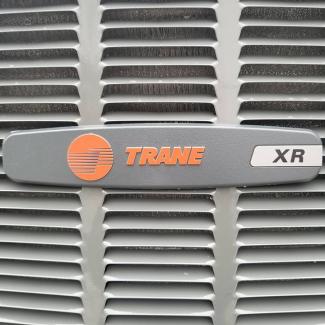
“Very pleased with the professionalism of this company. Aaron the sales rep starting by asking our needs and evaluating answers to determine the right unit for us. No pressure to buy and in comparison Trane is a top brand. For the slight difference in price it was a no-brainer. Bobby the tech and his helper did a wonderful job installing. Bobby went over every aspect of each unit and the controller. Being one of the coldest mornings this year I can say without a doubt, I love having a good heating system. Thank you Logan!”
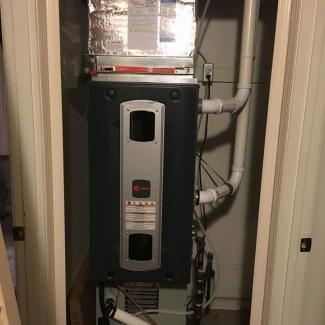
“We had our new furnace and heat pump installed yesterday. The installers, Doug and Ben did a great job and answered all of our questions! We are excited about the new system and the savings we will see! Thank you Logan Services for making this an easy process from the estimate with Pete, to the installation!”
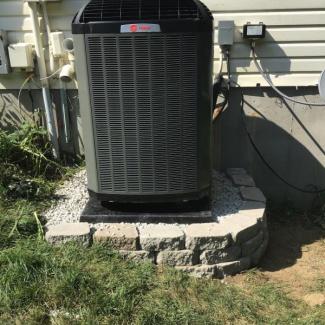
“Travis and his partner just finished replacing our 15-year-old HVAC system with a new Trane system. They were on time this morning — calling and texting in advance. They were efficient and neat as a pin in doing their work. Travis helped me set up the networked thermostat on my tablet and reconfigured humidity control to work from the thermostat instead of the old humidistat in the plenum. It is a really nice system and we are looking forward to many years of service from it.”
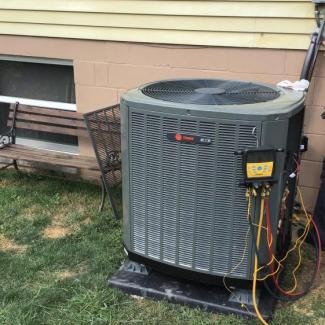
“The crew from Logan Services, that came to the house was very professional and informative. Did a great job and was very careful to clean up and show us how to use the new system.”
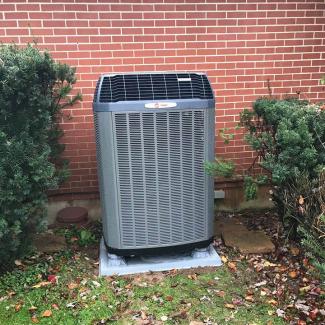
“Love the new heat pump. The guys that came to install were very prompt on time and cleaning up. They even ask if they could stay late to finish the job so they didn’t have to bug us the next day. Bring on the winter and the heat, we have it taken care of now!! Thanks from the Maxon family!!”
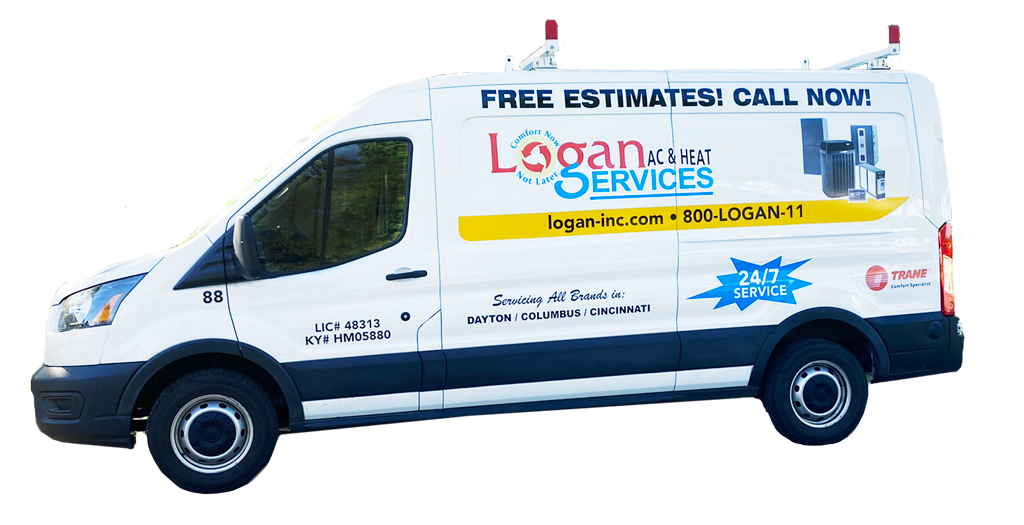

Our team is happy to help! Submit an online inquiry using the form in the button below or give us a call at (800) 564-2611.
Click on the city links to learn more about the local team and find your community on our extensive list of service areas. Have a question? Call any of our locations directly or submit an online inquiry using any of the contact forms on our website. Our team is happy to help!
© 2024 Logan A/C & Heat Services. All Rights Reserved | Sitemap | Privacy Policy | Ohio License: 48313, PL50488